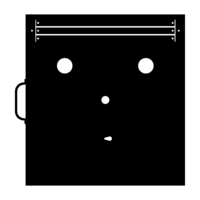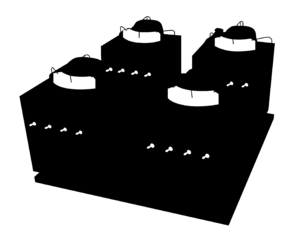Main Page
The Fabulous
Loop de Loop
The cybernetic discourse
as read through
seven feedback machines
A project by Steve Rushton
SITE UNDER CONSTRUCTION (NOT YET PUBLIC)
The 1800s–The Governor in a steam engine carries news of change through the system and adapts to that change (feedback). Some people think that the adaptability and flexibility of the governor follows the same principle of adaptability and flexibility that we see in the natural world.
M. SPECULARIX
(The Cybernetic Tortoise)
The late 1940s–The Cybernetic Tortoise moves about, responding to light and touch.
Does its movement demonstrate behaviour?
Does its behaviour demonstrate thought?
THE PORTAPAK:
SONY VIDEOROVER DV-2400 (1967)
The late 1960s-early 1970s–The Sony Portapak was a video system used to develop community media. Does the interaction between humans and machines represent an ecology?
SEER
(SEquence Extrapolating Robot)
The early 1950s–The SEER (SEquence Extrapolating Robot) plays a simple guessing game with humans. Is SEER one of the first “thinking machines”?
The late 1940s–The Homeostat explores the degree of self-organization afforded within a complex system.
If you disturb the homeostat, it will adapt and return to a stable state.
Does the "mind" of this machine extend into its environment?
THE ELECTROPSYCOMETER
(The E-Meter)
The early 1950s–The E-Meter (Electropsycometer) is used in Scientology auditing sessions. The E-Meter uses feedback to regulate and monitor the actions and re-actions of the user.
THE STRUCTURAL DIFFERENTIAL
(The Anthropometre)
1924–The Structural Differential is a “plastic diagram” that helps users understand the difference between an object and the word representing that object.
CONCLUSION
THE ANNOTATION
(An ongoing annotated bibliography) The Annotation runs as a parallel text alongside The Fabulous Loop de Loop.
THE LICENCE
Mediawiki cheatsheet Related links and images https://pad.xpub.nl/p/LoopdePad




